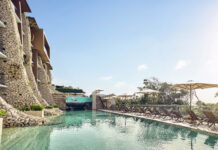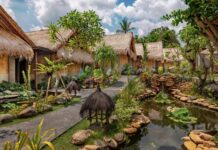When it comes to sustainability and environmental protection, Fairmont Hotels & Resorts took a proactive approach nearly three decades ago with the introduction of its award-winning Fairmont Sustainability Partnership, now part of Accor’s Planet21 program.
As a leader in environmental sustainability in the hospitality industry, Fairmont literally wrote the book on it via several editions of its how-to Green Partnership Guide. Fairmont’s approach combines leading operational efforts aimed at reducing overall impact on the planet with forward-thinking programs promoting responsible tourism. One of our personal favorite properties is Fairmont Chateau Lake Louise.
As a core part of the Fairmont DNA, this commitment to environmental stewardship includes the Bee Sustainable program, currently featuring over 20 honey bee apiaries and more than 20 wild pollinator bee hotels at Fairmont locations worldwide. Now, more relevant than ever, this meaningful initiative aids habitat protection, pollination of gardens and flowers, and helps support honey bee health.
Bees are one of the most effective pollinators on the planet and we rely on them for one-third of the food we eat. Here’s how four remarkable Fairmont hotels in Canada have implemented Bee Sustainable programs:
QUEBEC
Fairmont Le Château Montebello
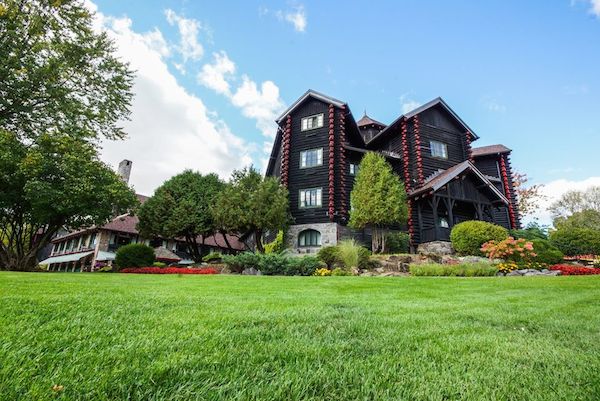
Nestled on 300 acres in the heart of Quebec woodlands, Fairmont Le Château Montebello has worked with the David Suzuki Foundation to plant milkweed plants for Monarch Butterflies to pollinate, and with the local elementary school to create a butterfly garden with nourishing flowers and educational signage for guests to explore.
The hotel partnered with Kenauk Nature to set up two honeybee apiaries that support the important process of pollination. The beekeeper at Kenauk Nature carefully tends to the apiaries throughout the season, making sure all 130,000 bees remain happy and healthy. Once the honey is harvested, the hotel’s chefs make sure guests get to taste this unique product by incorporating the honey in different recipes and desserts.
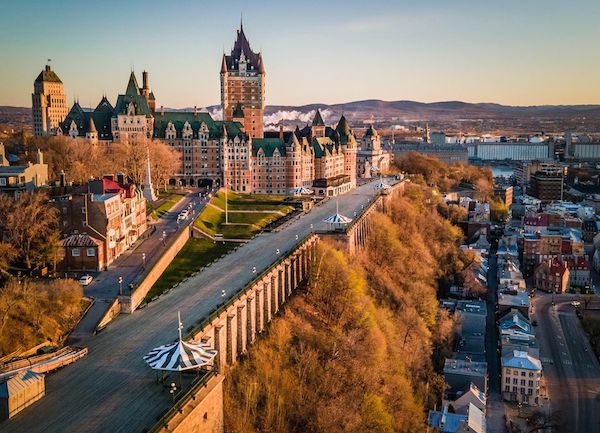
Quebec City’s iconic Fairmont Le Chateau Frontenac installed honeybee apiaries on their roof to help bees, recognizing them as an important pollinator. At the Château, four beehives welcome 70,000 bees, producing up to 650 pounds of honey per year. The honey is harvested twice a year and is used in the hotel’s kitchens, as well as in its cocktails. In order to improve the environmental sustainability of its daily operations, Fairmont Le Château Frontenac is also the first historic hotel in Canada to achieve carbon neutrality in 2020, thanks to a partnership with Laval University.
BRITISH COLUMBIA
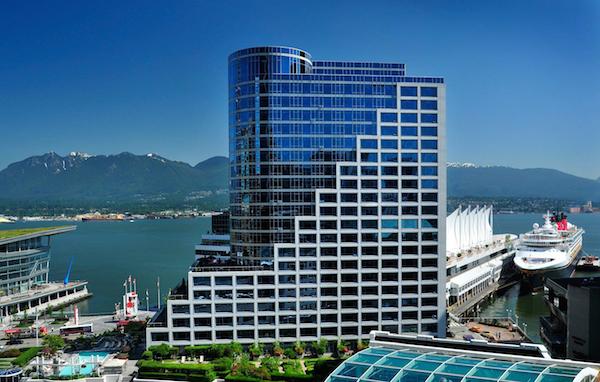
The scenic Fairmont Waterfront partnered with Hives for Humanity to introduce mason bees to the hotel’s garden as part of the larger Pollinator Corridor Project, which aims to build up local bee populations across Vancouver’s green spaces. Mason bees are super pollinators that live in tiny tubes. While they don’t produce honey, they are an integral part of the ecosystem. In addition to the Pollinator Corridor Project, the hotel’s partnership with Hives for Humanity has allowed for the creation of Bee Space, a permanent and covered location that allows Hives for Humanity to continue their community program throughout the winter months.
Fairmont Waterfront was the first Fairmont to host bees in their rooftop garden; the “Bee & Bee” Pollinator hotel. Fairmont Waterfront even went virtual with their bee video series: Fairmont Waterfront’s Buzz on Bees. The hotel also has a ‘bee team’ who do daily tours in the summer months – each year more than a thousand people take the tour.
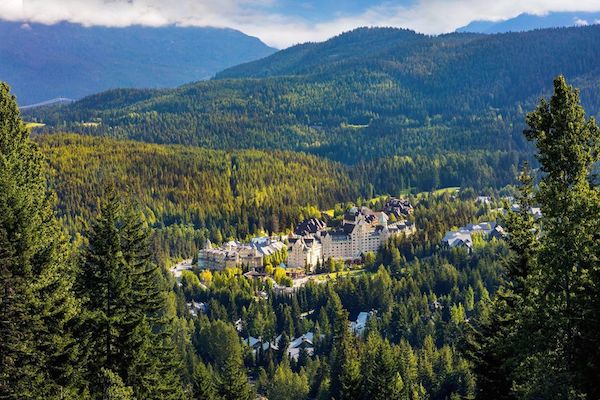
Fairmont Chateau Whistler joined forces with Pollinator Partnership, a leader in the protection and promotion of pollinators and their ecosystems for over 20 years. There will be a hive of activity happening on Fairmont Chateau Whistler’s Rooftop Terrace this summer with Chef Isabel Chung’s edible garden in bloom, a Bee & B Hotel welcoming weary travellers, and an outdoor pop-up restaurant sizzling up a delicious locally-inspired BBQ menu.
The Wild Bees help pollinate the garden that supplies fresh herbs and flowers for hotel menus and cocktails. After a hard day’s work, the busy bees retreat to the hotel’s bee sanctuary for food, hydration and safe lodging. Guests may enjoy self-guided Wild Bee learning via educational signage showcased in the gardens along with a Bee Hotel.
Under the banner of sustainability and environmental protection Fairmont continues to be a leader.





